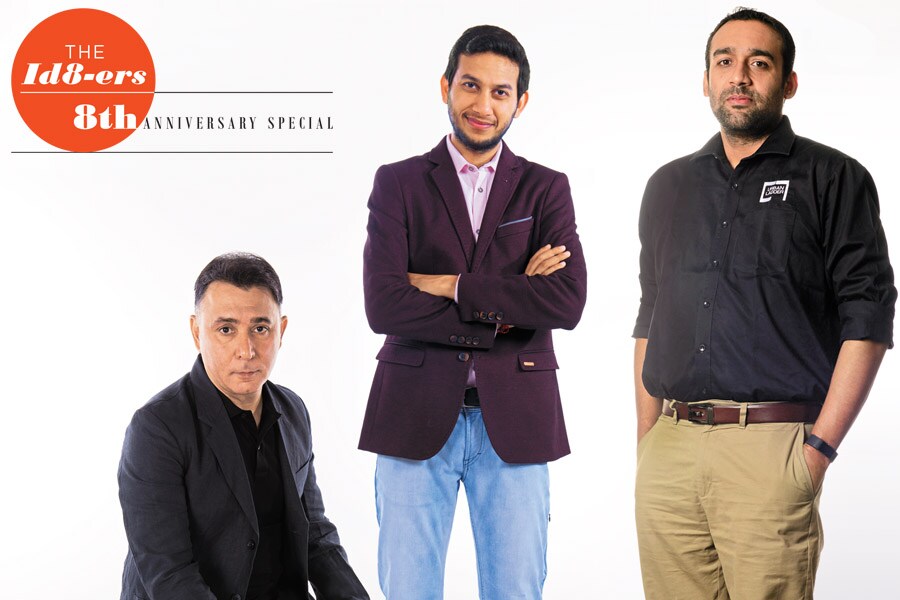The big ideas of 8 plucky startup founders and their journeys that followed
For our 8th anniversary special, we go back to where it all begins—the big idea



(From left) vivek Sahni (Co-founder, Kama Ayurveda) Ritesh Agarwal (Founder, OYO) Rajiv Srivatsa (Co-founder, Urban Ladder)
Well before he was 16, Konosuke Matsushita, the son of a small landowner who lost all his money, had set out to work in Osaka, Japan. Matsushita had no formal education and started off as an electrician at Osaka Electric Light Company. In 1917, when he was 23, he came up with the idea of an improved light socket, but his boss wasn’t impressed. Matsushita, though, was convinced with his idea: He quit his job and, in his tiny tenement, with savings that totalled less than 100 yen, set up his own manufacturing company. When he passed away in 1989, at the ripe old age of 94, his company Panasonic was one of the leading electronic goods producers in the world, with its size soaring to multiple billions.
Like Matsushita’s, every entrepreneurial journey begins with an idea at its core. Not every idea can successfully navigate the vicissitudes of entrepreneurship and hold its own through moments of dramatic change. And there isn’t any fixed template for triumph. But that one big idea needs to be nurtured with an unrelenting urge to stay ahead of the curve and innovate.
At Forbes India, we’ve brought you stories of success, and of businesses that have traversed multiple failures and scripted turnarounds. For our 8th anniversary special, we go back to where it all begins—the big idea, or the inflection point, as Intel founder Andy Grove had said, that definitive moment that changes the way we think and act. In this package, we chronicle the big ideas of eight plucky startup founders and the journeys that followed.
Rajiv Srivatsa of Urban Ladder, for instance, channelled his inability of finding good furniture into a business that has expanded to 18 cities in five years and has attracted capital from Sequoia Capital to Ratan Tata. Rahul Singh of The Beer Café had a key takeaway from his bankrupt golfing venture—that alcohol was a bigger draw than sports—and turned around with the largest alco-beverage chain in the country. Singh’s story resonates with Shubhra Chadda’s who conceptualised iconic souvenir brand Chumbak during a maternity break and sold her house to set up shop.
The vitality of an idea often trumps other variables such as age and geography. Ritesh Agarwal best represents that creed. Agarwal, who grew up in a small town in Odisha, started selling SIM cards at 13 and launched his first venture, Oravel Stays, at 17, having dropped out of college. His pivoted enterprise OYO is now tucked away in multiple corners across the country and abroad, making it one of the most valuable startups in the country. Ideas are the biggest capital for comedy collective All India Bakchod too. Their founding member Tanmay Bhat throws his hands up when asked about their entrepreneurial zeal. “We were never too ambitious. Our entrepreneurship is reflected only in our thoughts,” he says.
Our Special Report holds these stories that celebrate ideas, as we plot the turning points that keep the Indian startup ecosystem bristling with vigour.
First Published: May 18, 2017, 03:50
Subscribe Now